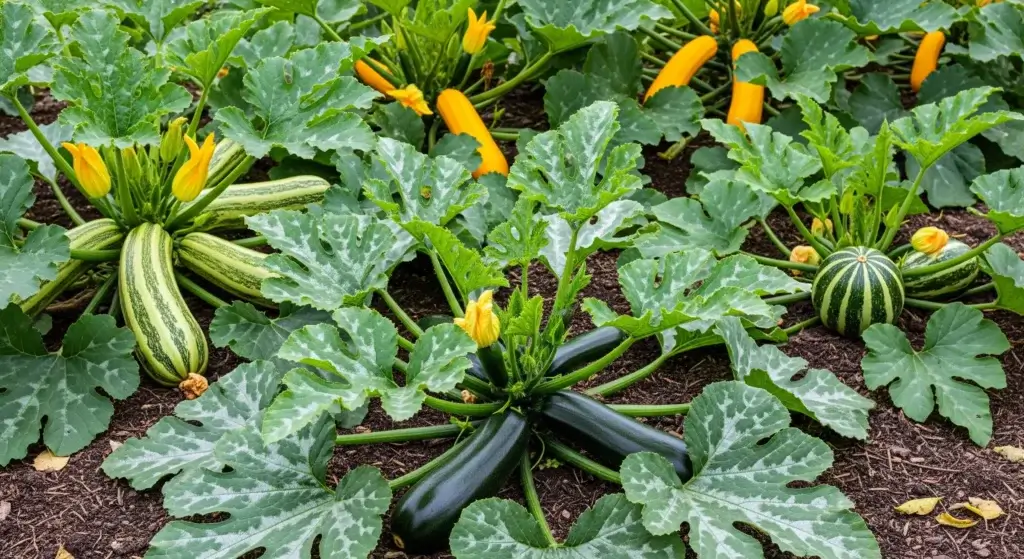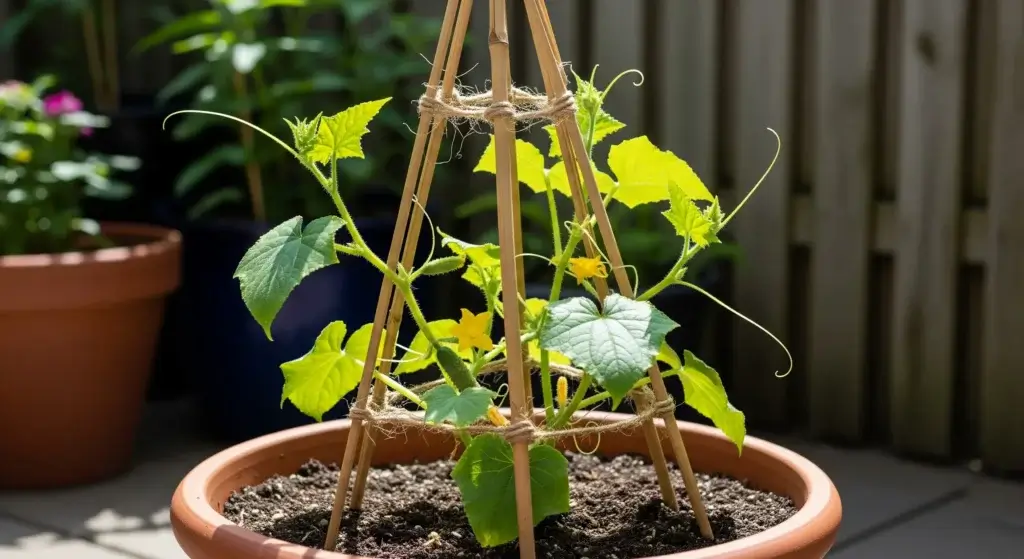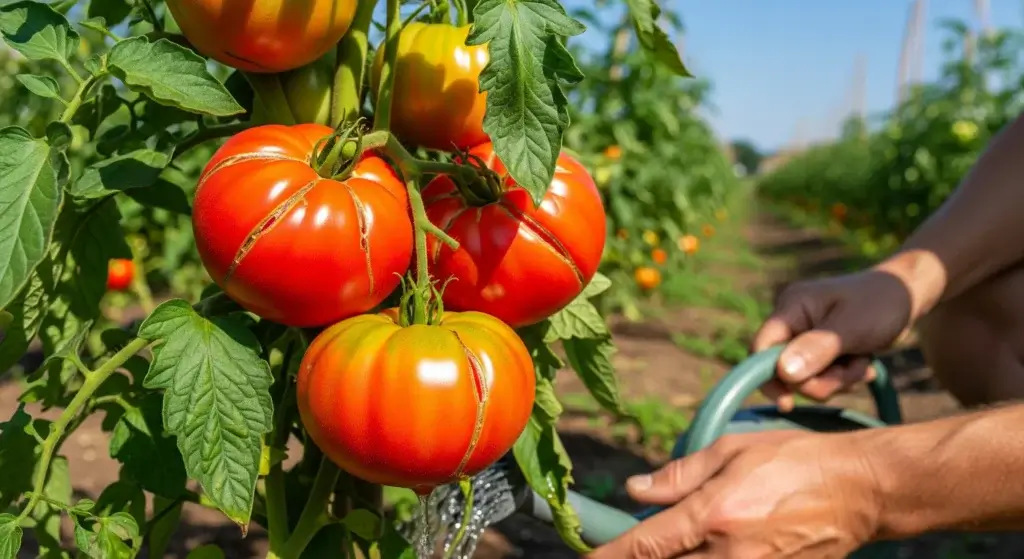
Picture a garden filled with flourishing, vibrant vegetables – a true green paradise.
Achieving this isn’t just about tending to the soil and providing ample water; it involves unlocking the potential of natural remedies, such as neem oil.
This comprehensive guide will delve into the realm of using neem oil for your vegetables, exploring its applications, advantages, and potential risks, and even sharing insights on crafting your own neem oil spray.
What is Neem Oil?
The production of neem oil involves extracting it from the fruits and seeds of the neem tree, scientifically recognized as Azadirachta indica.
This evergreen tree is native to the Indian subcontinent but has been introduced to different tropical and subtropical regions across the globe.
Neem oil offers numerous advantages for promoting the well-being of both the skin and hair.
It is also recognized for its effectiveness in pest control and serves as a natural insect repellent.
Neem oil comprises various components, with azadirachtin standing out as the primary active ingredient responsible for repelling and eliminating pests.
This versatile oil finds applications in a wide range of products, including cosmetics, toothpaste, and pet shampoos.
While neem oil is generally considered safe, it is essential to exercise caution as it may trigger allergic reactions in some individuals.
- Read also: Natural Pest Control Methods for Your Vegetable Garden
- Read also: Natural Pesticides for Indoor Plants

How to Make Simple Neem Oil Spray for Vegetable Gardens
Creating your neem oil spray is a cost-effective and eco-friendly way to enhance your garden’s health, follow these simple steps.
Ingredients
- 1 teaspoon (5ml) neem oil
- 1/4 teaspoon (1ml) liquid dish soap (Castile soap preferred)
- 1 quart (1l) warm water
- Spray bottle
Instruction
- Combine the neem oil and dish soap with the warm water in your spray bottle.
- Give the bottle a good shake for at least 2 minutes to create a well-mixed emulsion.
- Your neem oil spray is now ready for use!
How to Apply Neem Oil to Your Vegetable Plants
Soil drenching
Combine neem oil with water in a ratio recommended on the product label.
A typical ratio is 1-2 tablespoons of neem oil per gallon of water.
- Application: Pour the neem oil-water mixture directly into the root zone of the vegetable plants. Ensure even distribution around the soil to reach the root system effectively.
- Frequency: Apply the neem oil solution every 2-4 weeks, depending on the severity of pest or disease issues.
Foliar spraying
Dilute neem oil in water as per the product instructions, usually around 1-2 teaspoons per gallon.
- Application: Use a handheld sprayer to evenly coat the leaves with the neem oil solution. Pay extra attention to the undersides of leaves where pests often hide. Apply neem oil in the early morning or late evening to avoid sun exposure, which can cause leaf burn.
- Frequency: Repeat the foliar spraying every 7-14 days, or as needed, depending on the presence of pests.
Treating the entire plant
Mix neem oil with water following the recommended ratio for thorough coverage.
- Application: Apply the solution from the base of the plant, covering stems, leaves, and even the soil. Ensure every part of the plant is treated, including the upper and lower surfaces of leaves.
- Frequency: Treat the entire plant every 3-4 weeks for ongoing preventive care.

What are the Benefits of Using Neem Oil for Vegetable Plants?
Natural pest control
Extracted from neem tree seeds, neem oil stands as a natural alternative to synthetic pesticides and fungicides, steering clear of harsh chemicals.
Functioning as a powerful insecticide, it disrupts the life cycle of pests and discourages them from settling on your vegetable plants.
Fungal disease prevention
Neem oil’s antifungal qualities serve as a robust defense against prevalent plant diseases, ensuring your garden remains a pathogen-free environment.
Boosted plant immunity
Regular application of neem oil enhances the overall health and resilience of your vegetables, making them less susceptible to stress and diseases.
Systemic protection
When applied to the soil, neem oil can be absorbed by the plant, providing systemic protection against pests and diseases from the roots up to the leaves.
Environmentally friendly
Neem oil breaks down naturally without leaving harmful residues in the soil or water sources.
Also, it doesn’t harm beneficial microbes and beneficial insects, contributing to a healthy ecosystem.

What are the Risks of Using Neem Oil for Vegetable Plants
Although neem oil is typically safe, using it wisely is essential.
Failure to adhere to recommended application guidelines, including overuse, may result in:
Leaf burn
Applying neem oil during periods of intense sunlight can lead to leaf burn, so it’s advisable to treat plants in the early morning or late evening.
Residue
If not applied correctly, neem oil may leave a residue on the edible parts of vegetables.
It’s best to minimize any potential residue on the parts you’ll eat, Avoid spraying within 24-48 hours of harvest.
Aquatic toxicity
Neem oil poses a risk to fish and other aquatic organisms if it enters bodies of water such as ponds or streams. Exercise care when spraying in proximity to water features.
Soil contamination
Excessive application of neem oil in the soil has the potential to disturb the microbial balance and structure.
To avoid soil issues, it is crucial to follow the recommended application rates.
Repellent impact
Neem oil, while mainly directed at pests, carries a potent odor that can also deter beneficial insects such as bees and butterflies, particularly during flowering periods.
Avoiding excessive use of neem oil is crucial to preserving the presence of these beneficial insects.
- Read also: Ladybugs for Effective Aphid Control
- Read also: A Guide to Whitefly Control on Vegetables

Conclusion
Incorporating neem oil into your vegetable gardening routine is akin to bestowing a protective shield upon your green companions.
The crux lies in comprehending its applications, advantages, and potential risks.
Through judicious use of neem oil, you can nurture a flourishing garden that not only yields abundant produce but also fortifies itself against the challenges posed by pests and diseases.
Frequently Ask Questions
Yes, neem oil is generally safe for use on a wide variety of vegetables.
Yes, neem oil is safe to use during all stages of plant growth, including flowering and fruiting.
Neem oil is safe for plants, but caution should be exercised to avoid direct contact with eyes or skin. Keep pets away from recently treated areas until they dry.



